It’s not always easy to tell if ants are a problem for your sunflowers. It depends on different factors, such as the type of ant and the scale of the infestation.
While red ants can be an issue, black ants cause problems for sunflowers only when they farm aphids. These are tiny sap-sucking insects that can weaken your sunflower plants considerably.
There are a couple of other species of ants that can harm plants, but they aren’t common in North America.
Most times, ants will be beneficial for your sunflower plants as they hunt harmful insects. For large-scale infestations, you might want to get rid of them anyways.
- Related article: Ants in My Plant Soil
There are many methods to deter them, for example using strong smells they dislike.
You can also bait them with sugar or spray them, but the most efficient way is to get rid of aphids. If these are missing, there will be much fewer ants on your sunflower plants.
Are Ants on Sunflower Plants a Problem?
Ants can sometimes be a problem to sunflowers. The following are the main reasons why:
1. Ants Farm Aphids
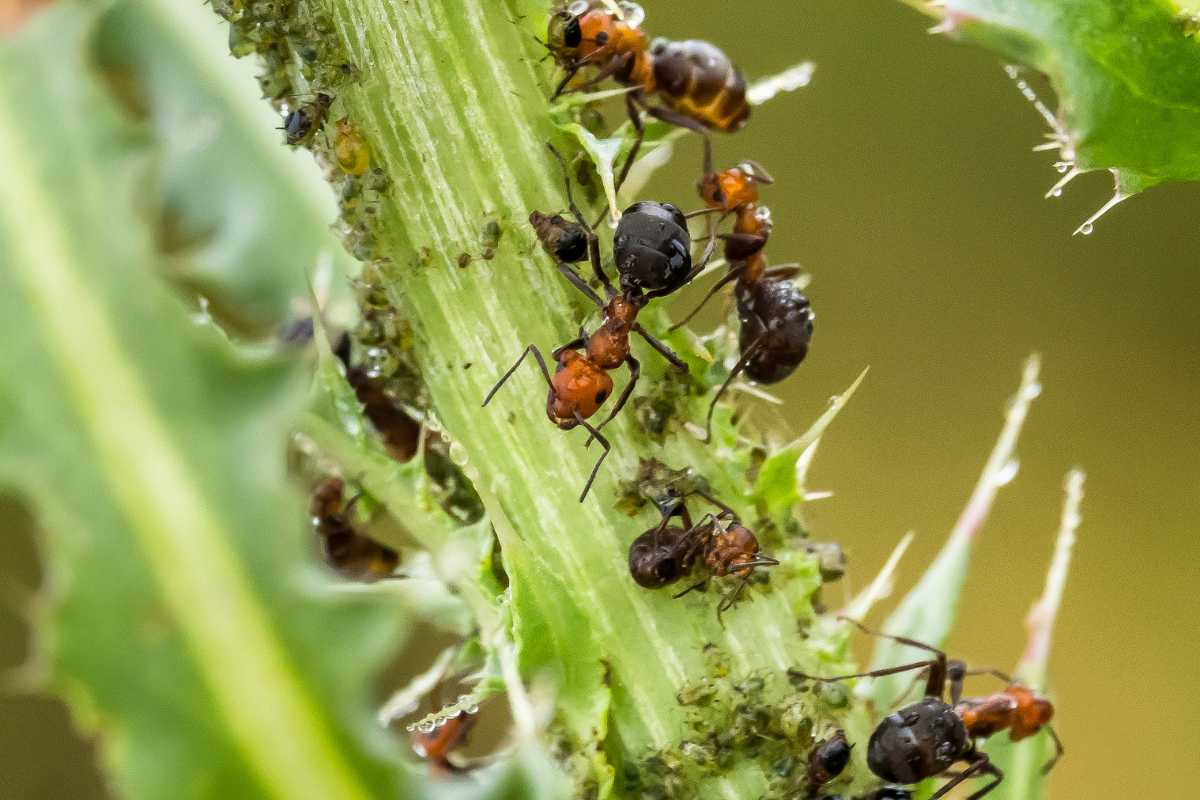
Ants just love the sweet substance aphids excrete. These tiny insects need to suck huge amounts of sap from plants in order to satisfy their nitrogen requirements.
This way, they ingest much more sugar than they are able to digest, resulting in very sweet excretions.
For ants, it’s much easier to ensure they have a constant supply of this sweet honeydew from aphids rather than continuously looking for other sources of food.
Therefore, they have learned to farm aphids and even fight with their predators to protect them.
Sometimes, they will carry the aphids onto sunflower plants and alternative food sources if it’s a safer location for them.
This behavior can cause the aphid population to grow exponentially. When there are only a few of them, they aren’t a big problem, but with a whole aphid colony, it’s a different matter.
They can considerably harm your sunflowers, causing the sunflower leaves to yellow, twist, discolor or drop off.
The damage to young buds is even more substantial, as new growth is stunted or distorted.
Moreover, the excreted honeydew that remains on the leaves attracts a sooty mold that can decrease the plant’s ability to photosynthesize.
Lastly, aphids on sunflowers can also spread diseases from one plant to another.
2. Fire Ants Eat Sunflowers
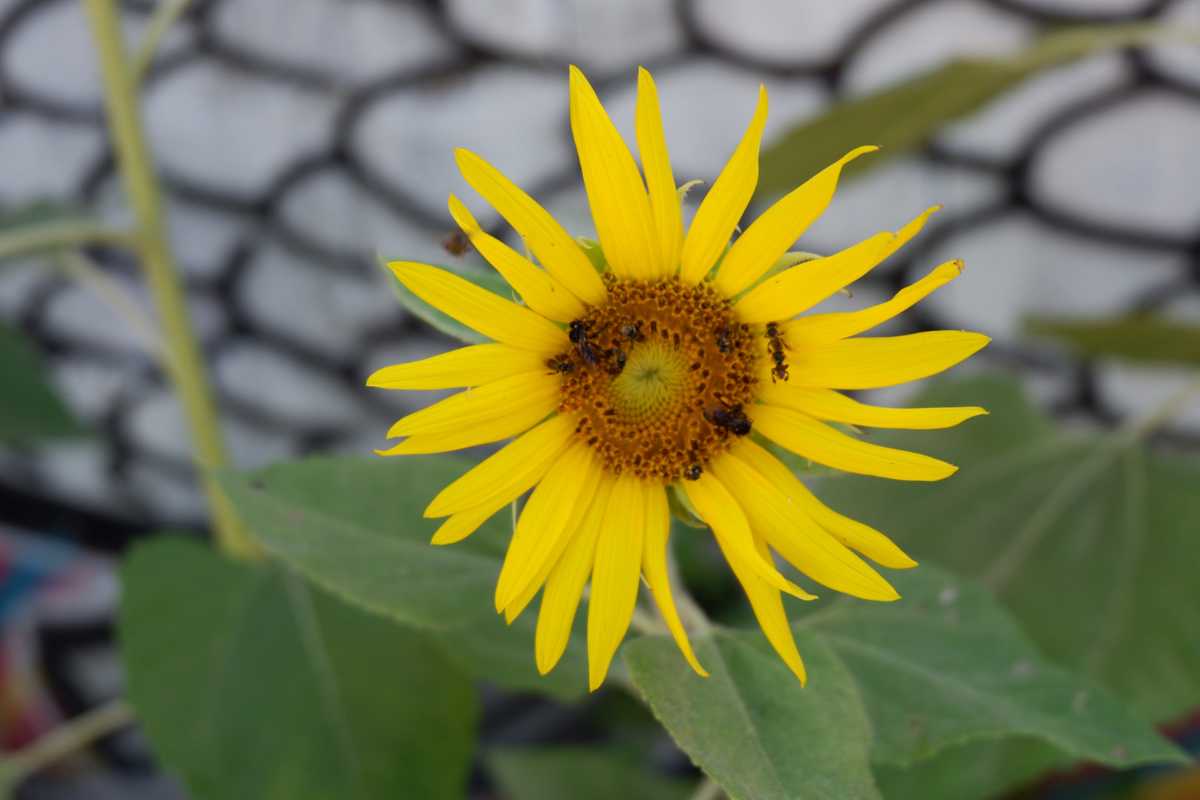
These ants often go into sunflower beds, where they can feed from the most tender parts of the flowers.
Red ants are notorious for the damage they can cause. They are not only an issue for your sunflowers, but also for you, as their sting is venomous.
Usually, it doesn’t cause major issues, but it can hurt for quite a while.
3. Leafcutter Ants and Allegheny Mound Ants
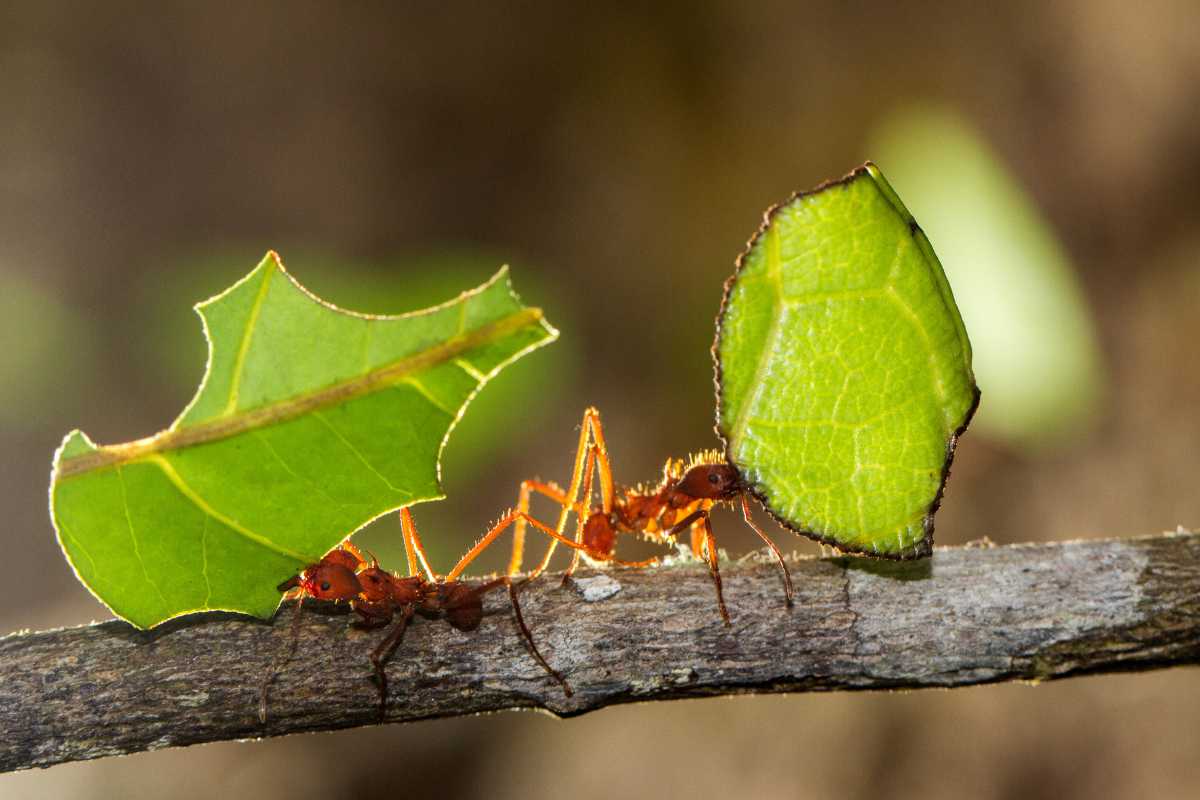
These two species can be very harmful to sunflowers and other plants, but fortunately, they aren’t common in North America.
Leafcutter ants remove the leaves from plants to raise a fungus, which is their only source of food.
Allegheny mound ants, on the other hand, build huge mounds and kill any vegetation in their vicinity.
Fortunately, you won’t have to worry about them.
Will Ants Eat Sunflower Plants?
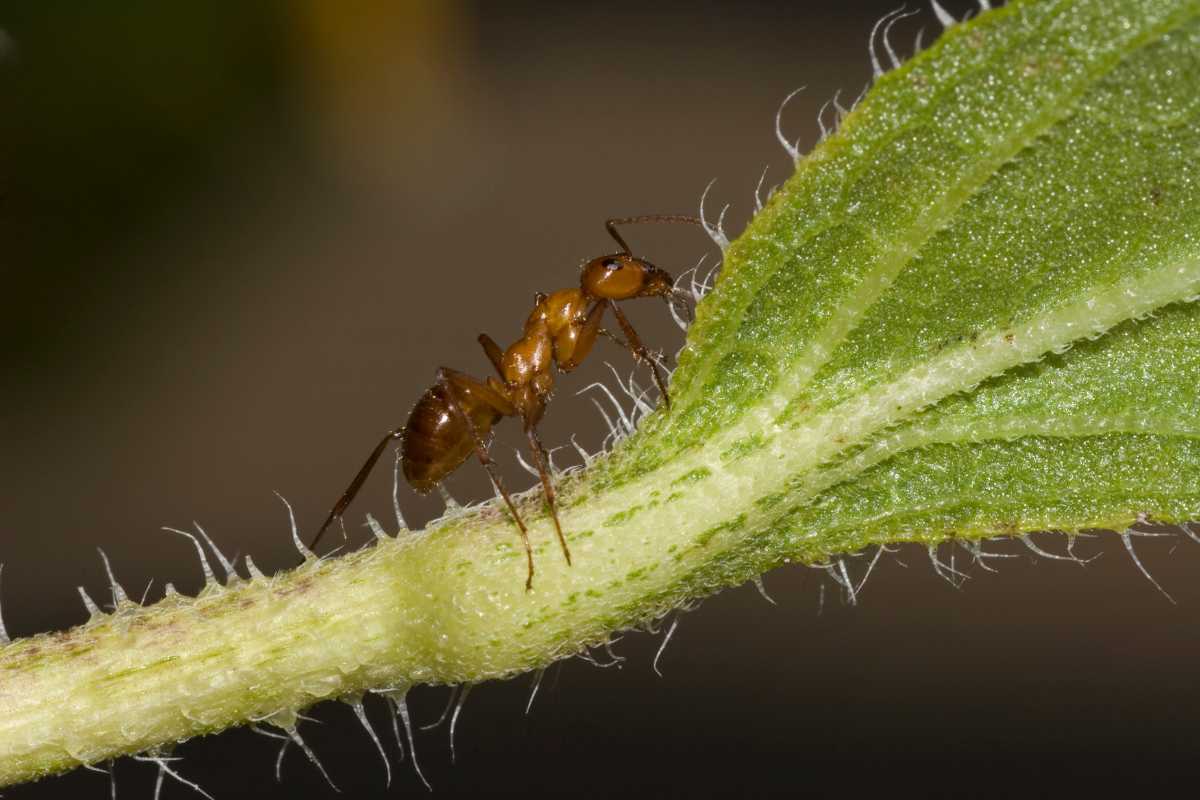
Ants don’t normally eat sunflower plants, with the exception of red fire ants. These small ants can cause damage to plants by feeding on them directly.
They normally concentrate on the youngest plants, which are the most tender, or on the buds. Other ants might occasionally feed on sunflower nectar.
Many varieties of sunflowers have special organs that develop before the flowers, specifically to attract ants and other beneficial insects.
These extrafloral nectaries are situated at the base of the new leaves and they secrete a sweet nectar these nectar-drinking ants love.
This doesn’t cause any damage to your sunflowers. On the contrary, it can benefit them, as ants will protect their food from predators and even help pollinate the sunflowers.
If you notice sick sunflowers overflowing with ants, don’t be tempted to assume they are to be blamed. Most likely, your plant is suffering from a fungal infection, or from mildew, or gray powder mold.
How Can Ants Help Sunflower Plants?
Ants can be very beneficial to sunflowers.
Most times, they are seen as good insects to have among your plants, and many farmers go as far as introducing them if the local population is scarce.
Following are the main benefits of having a thriving ant colony, keeping in mind we are mostly talking about black ants:
1. Ants Fight Off Predators
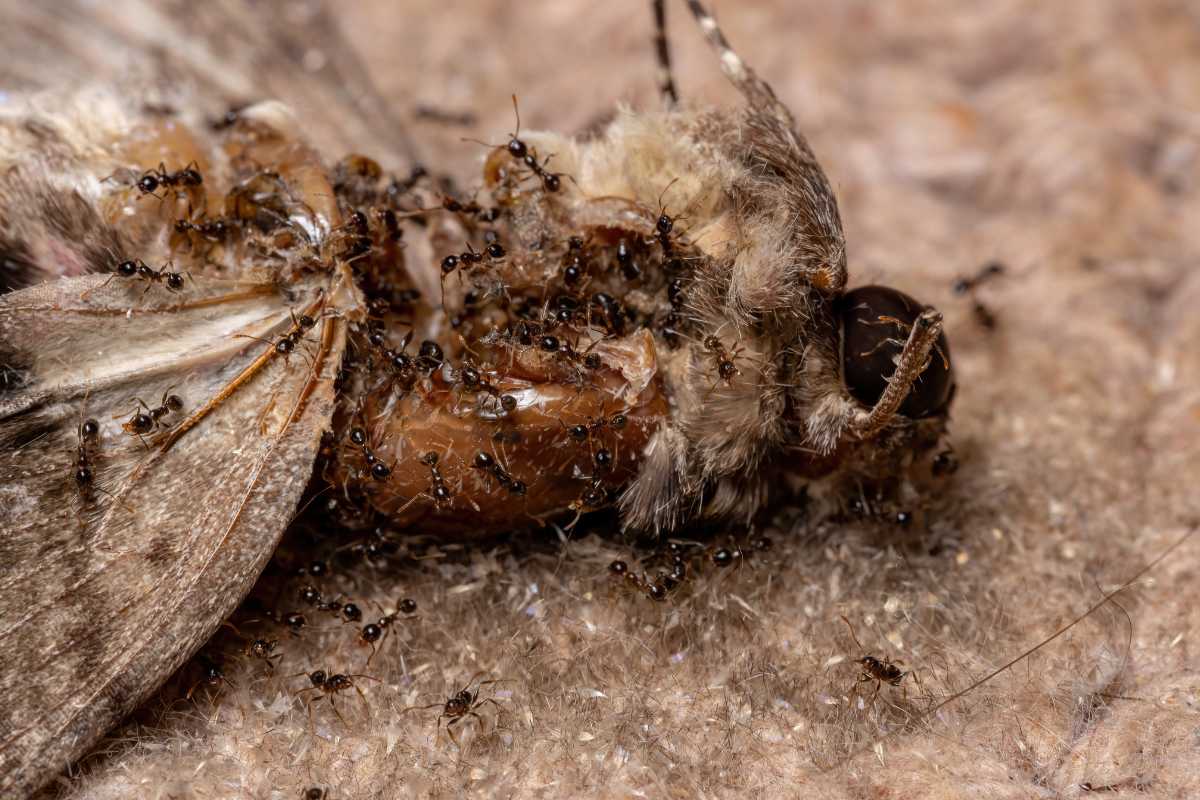
These insects are extremely possessive of their food and will fight off other garden pests and unwanted insects.
Once they get established on a plant, they will protect it from its predators, helping it to thrive.
2. Ants Help Pollinate
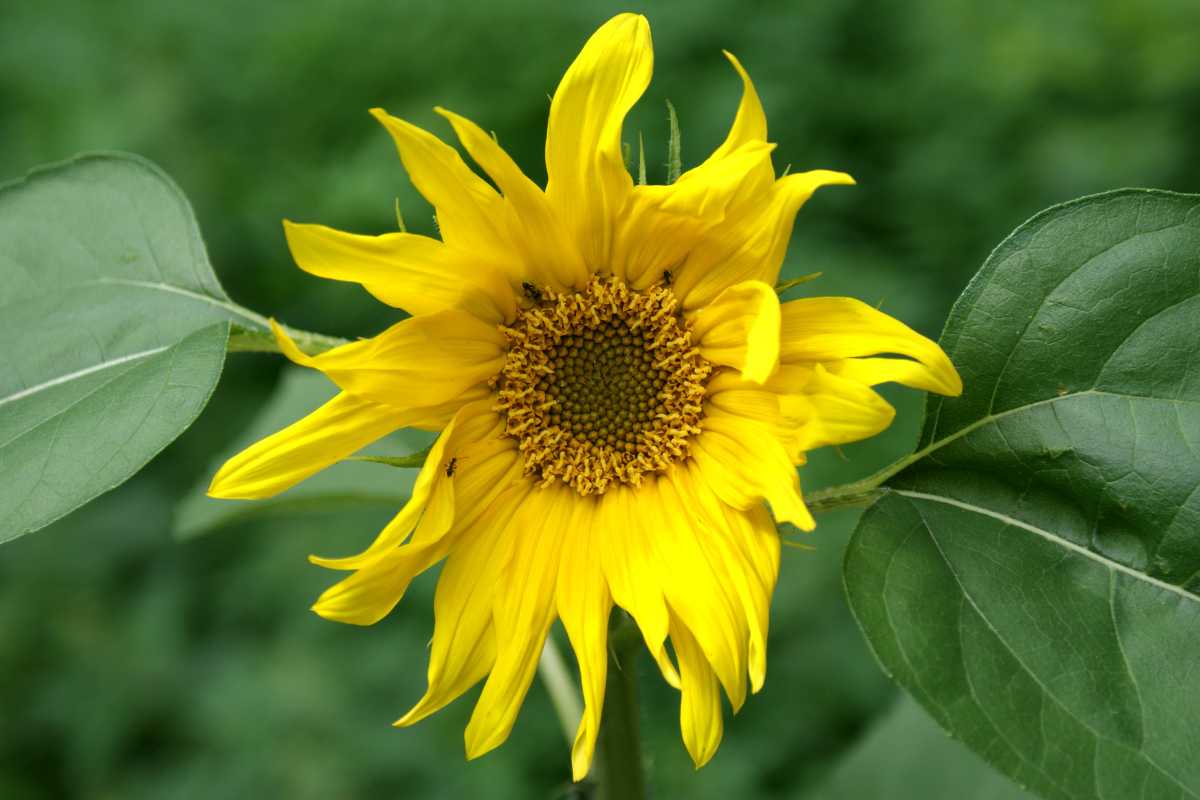
As they like to feed from sunflower pollen and nectar, ants can contribute to the plant’s reproduction. This happens mostly through a process known as myrmecophyly.
As ants travel from plant to plant in search of food, they pick up pollen on their bodies. When they visit the next plant, some of this pollen may rub off, resulting in pollination.
3. Ants Can Help Seeds to Germinate
Ants collect seeds, but they don’t eat them whole. They usually feed from the outer layers, leaving the fertile inner core intact.
In this way, they can facilitate germination, and they also help to spread the seeds around.
4. Ants Improve the Soil
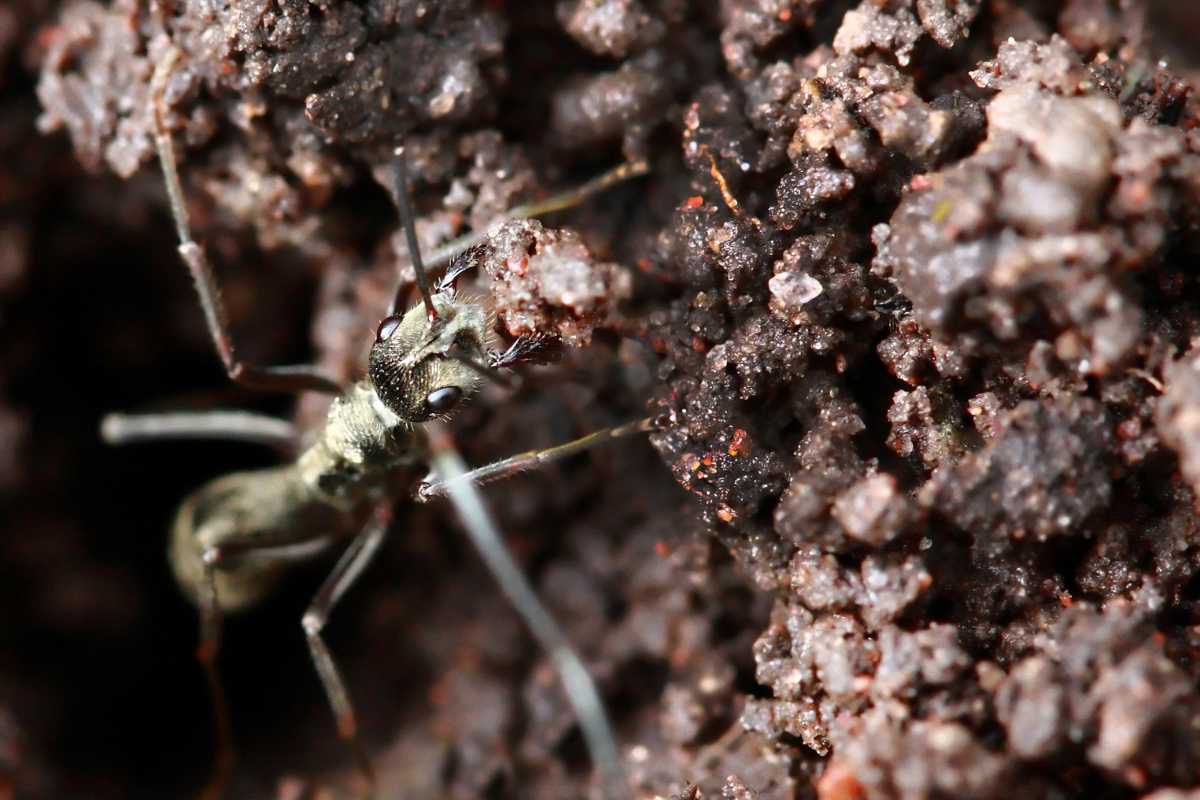
Ants’ nests are a complex system of underground galleries, which can be beneficial for the health of the soil.
These ant tunnels allow air and moisture to permeate the soil more thoroughly, and reach the plants’ roots more efficiently.
5. Ants Clear Out Waste Products
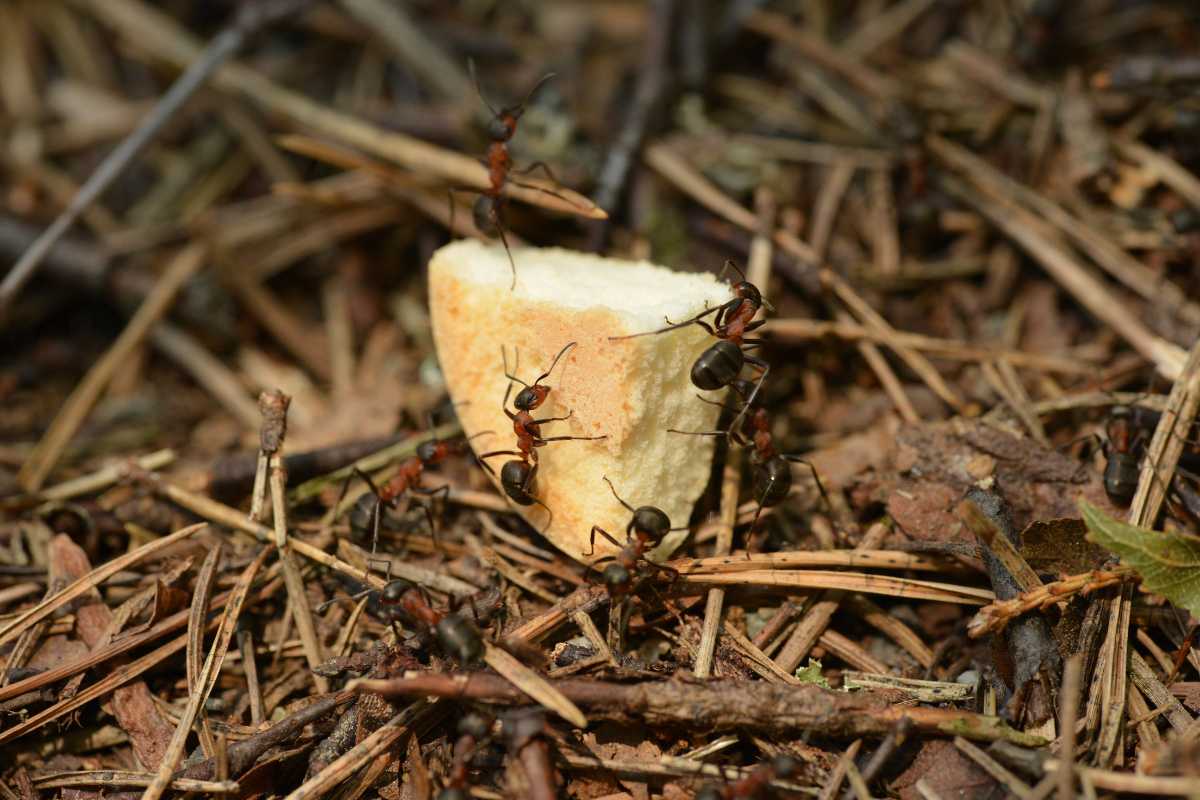
Ants are excellent decomposers, so they will take away any dead plant part and avoid it from accumulating on the ground.
Dead insects and other animals also get taken care of, and once they are broken down, they fertilize the soil.
Best Ways to Keep Ants Away from Sunflower Plants
In order to keep ants away from your sunflowers, you will have to use different methods depending on the type of ant and whether aphids are present.
With black ants and aphids, the best solution is to take care of them simultaneously.
Another reliable option is to simply fight off the aphids population, and the ants will most likely go away by themselves.
1. Get Rid of Aphids
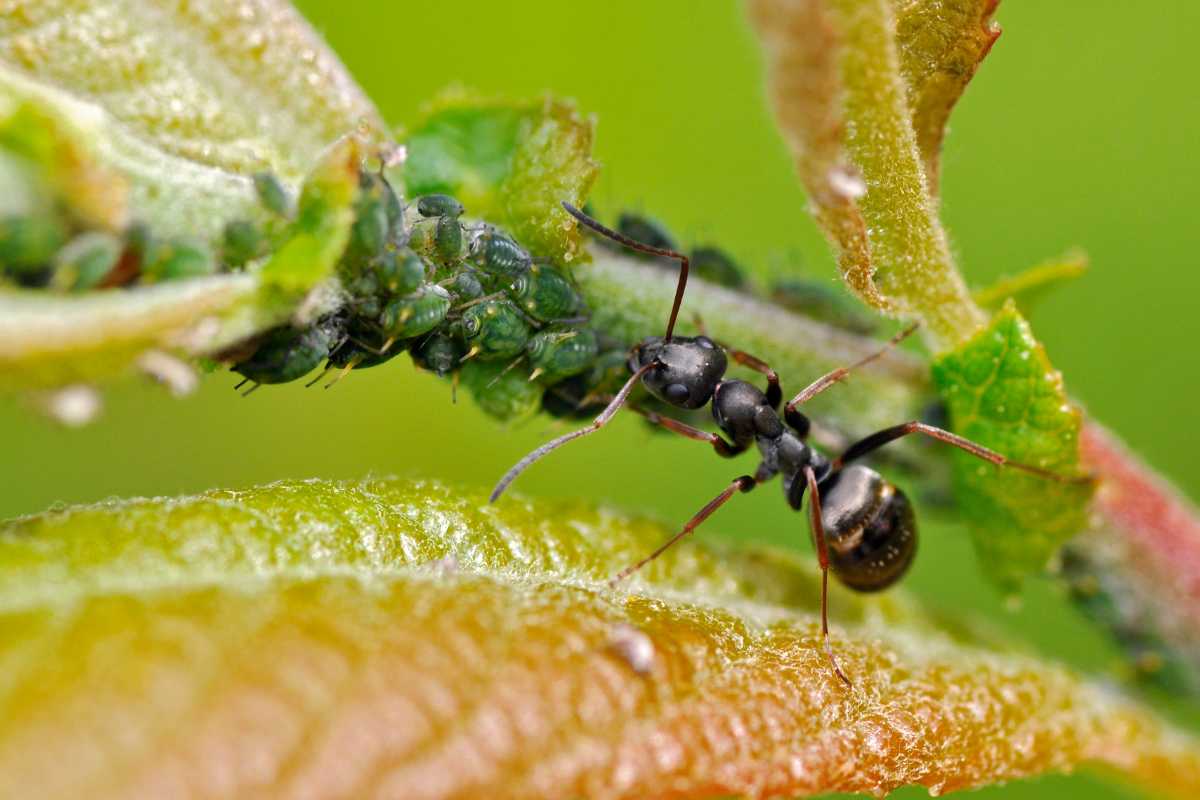
You can spray aphids hiding on the undersides of leaves with garden hose or sharp spray bottle to dislodge them from sunflowers.
As most aphids can’t fly and move very slowly, they will die before they are able to return to the plant.
Another option is to spray them with neem oil, insecticidal soap, or friendly dishwashing liquid.
Aphids can also be controlled by introducing predator insects, such as ladybugs, green lacewings, or parasitic wasps.
- Related: How Get Rid of Ants in Garden
2. Repel Ants
While you deal with aphids, you could employ methods to deter ants from your sunflower plants.
You can manage this by using strong smells they dislike, such as those of cinnamon, cayenne pepper, curry, garlic powder, black pepper, chili peppers, or peppermint oil.
Baby powders are also said to be effective as it has pheromone scent, having the same effect as cinnamon and peppermint oil.
You can also place sticky barriers below the first set of leaves. You can simply use a 4-inch wide sticky barriers and the ants will either get stuck to it or learn not to cross it.
For sunflowers, it’s best not to apply the tape directly on the stalk, as it could harm the plant. You can first wrap a layer of masking tape around the base of the stalk, and apply the sticky one on top of this.
The same can be accomplished by covering the stems in Vaseline, which prevents the ants from climbing up the plant.
These methods are especially effective if used in tandem with ant baits.
Read more about Plants That Keep Ants Away From House.
3. Make Bait Traps For Ants
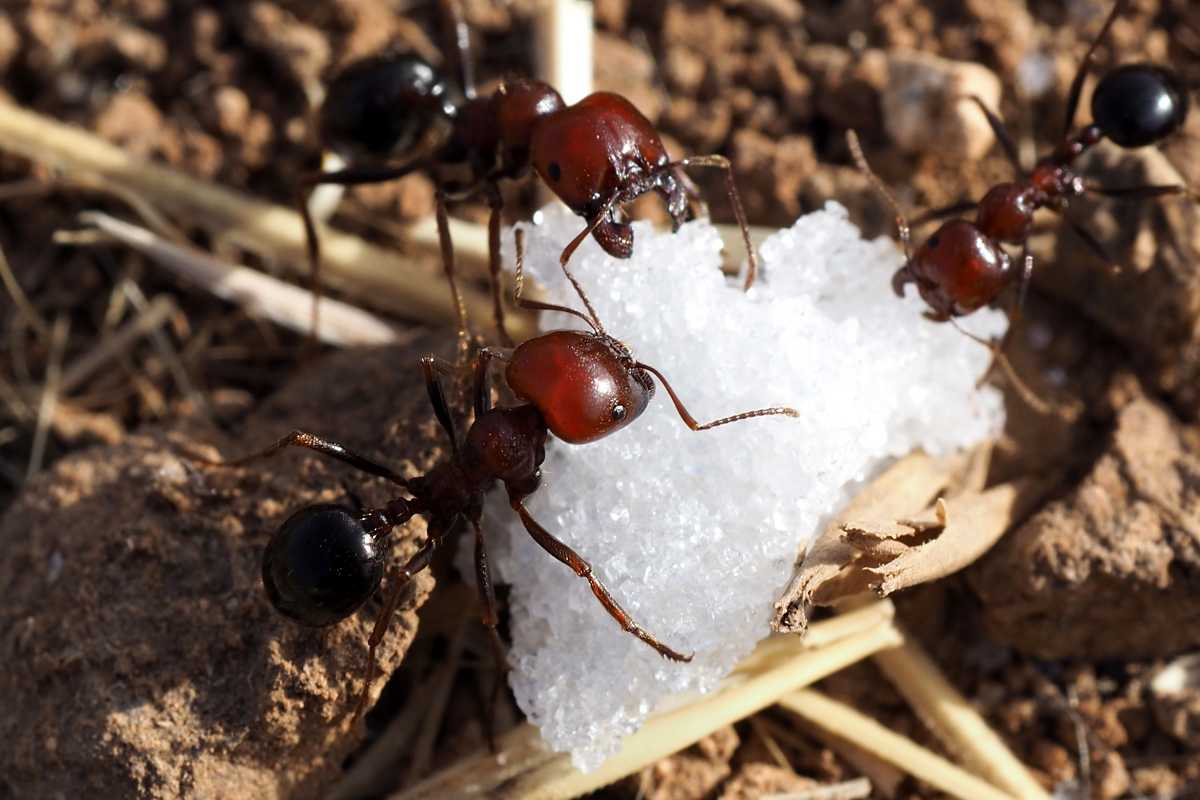
Ants can be easily baited with anything sweet, such as sugar or honey.
By mixing boric acid with the bait, you will ensure that the ants will carry it back to their nests and the whole colony will be affected.
Boric acid is in fact very poisonous for ants, but they aren’t able to detect it when it’s mixed with sugar.
You can place the baits at the base of the plants or next to the ant nest. Avoid using more than necessary, as borax can be slightly toxic for pets and small children.
4. Diatomaceous Earth (DE)
Diatomaceous Earth is a natural product that looks like a very fine powder and kills the ants on contact by piercing their exoskeletons.
DE is very safe to use and doesn’t cause any damage to plants or the environment.
It also acts against other pests, so it can be especially useful if you have other insects infesting your sunflowers.
DE is also safe to eat, as it is in fact used in many packaged foods to protect them from bugs. You can simply sprinkle this white powder around your sunflowers to keep insects away.
Ants On Sunflowers Final Thoughts
Ants and sunflowers have a unique relationship that benefits both species.
Ants provide protection to the sunflower plant from herbivores and other predators, while the plant provides nectar and shelter for the ants.
The behavior of ants on sunflower plants is fascinating to observe and study, and it highlights the importance of mutualism in nature.
By working together, ants and sunflowers exemplify the power of collaboration and exchange of resources for mutual benefit.
Take a look at these articles to learn more about ants on sunflowers:
- How to Get Rid of Ants in Vegetable Garden
- How to Get Rid of Ants on Squash Plants
- How to Get Rid of Ants on Watermelon Plants
- Ants on Corn Plants
- How to Keep Ants Out of Potato Plants
- How to Get Rid of Ants on Artichoke Plant
Sources:


Hello Ms. Gray….I am planning to plant giant sunflowers in my little flower garden out front for 2024, and have lost them before by red ants eating into the stalk below ground, climbing and knawing higher & higher, which killed them. I cried, then cursed, but they still died. Please tell me what I can I do to prepare my soil so I have no more red ants, or is that even a possible solution ? I’ve sprayed my plants to remove aphids, I’ve seven dusted them, I cried and cursed, cause it did no good….not really but I wanted to. I’m known in my neighborhood for my giant sunflower plants, I wish to reclaim my title, so to speak. BTW, you are also quite pretty, if you don’t mind my saying so……